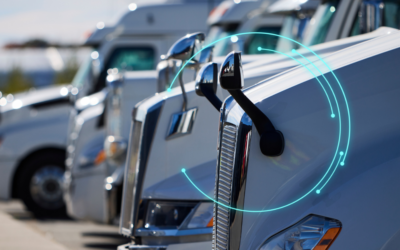Lessons from past cyberattacks can help companies prepare and respond more successfully to future threats. According to research published by the Cyentia Institute, a business that responds poorly to a cyberattack experiences 2.8 times more losses than companies that respond well to an attack.
Responding correctly to cyberattacks is the responsibility of everyone in an organization, not just the IT security team. Preparedness begins at the top, with leadership that deploys strong security and business continuity processes while avoiding common mistakes that make things worse.
Watch Webinar – Ramping Up Cybersecurity
3 Common Mistakes that Prevent a Successful Recovery
Nobody goes to work expecting a cyberattack, so it catches companies by surprise. People can be caught off guard and quickly overwhelmed when confronted with situations that they haven’t trained for or experienced. As emotions and stress rise, people will be more likely to make mistakes that impact business continuity and damage control.
Unrealistic recovery deadlines and expectations
Senior leaders should be aware that the worst day of a cyberattack isn’t necessarily on day one or two. There could be significant uncertainty for weeks before gaining a full understanding of the scope and damage of the attack.
Recovery will depend on multiple factors, including the systems and software impacted, the type of attack deployed, and overall preparedness. Companies that enlist support from third-party security firms and law enforcement can help to accelerate recovery and minimize damage.
Waiting too long to get help
Many cyberattacks deploy sophisticated tactics and advanced digital tools. Organized crime groups responsible for most attacks have sharpened their tactics and tools to become experts at cybercrime. Few businesses have the resources and expertise needed to defend against experienced cybercriminals alone.
If an attack happens, fleets should not hesitate to get help as soon as possible from organizations such as:
- Police departments
- Security specialists and consultants
- Legal firms
- Vendors and suppliers
- Government agencies
In fact, companies should already know who to contact before experiencing a cyberattack. Not all incidents require a coordinated effort involving several organizations. However, working with these groups can significantly accelerate a response to an attack to limit the damage.
Blaming IT and employees in anger
Cyberattacks create a shocking business disruption that feels like it happens instantaneously. Emotions can quickly become heated, resulting in anger and blame towards IT departments and employees. In the wake of an attack, energy should be focused on resolving issues instead of adding pressure that can increase organizational paralysis.
Company leaders must understand that criminals are responsible for an attack—not a hacked IT department or an individual. Business leaders should always focus on solving problems, even if mistakes or oversights occurred.
How Fleets Can Respond Well to Cyberattacks
Data breaches, ransomware, online fraud, and cryptocurrency theft will continue to be a persistent business threat, including trucking fleets of all types. Companies need to ready themselves to respond correctly to an attack, even if they deploy excellent preventative security measures.
Plan and prepare
Companies that prepare for a potential attack can deploy a plan that reduces damage and supports business continuity. Three main aspects of a strong plan include:
Accurate threat detection—Companies should have systems in place to detect incoming attacks and reveal intrusions. IT security systems should provide a transparent view that prevents blind spots in security and ensures an awareness of threats.
Timely incidence response—Incident response capabilities, including digital tools and external support, help to effectively investigate threats and remediate problems before they grow into an attack that disrupts the entire fleet.
Prompt disaster recovery—Disaster recovery plans cover common types of threats to business continuity, including natural disasters, physical threats, and digital attacks. Companies implement disaster recovery capabilities to become more resilient and reduce damage, especially for key business functions and departments. This includes backups for data and core operating processes.
Active leadership instead of delegating
Don’t consider your leadership work complete when you create an incident response procedure. Actively review and test procedures, including them as part of your regular tabletop security exercises. Leaders need to recognize that their active investment in security will greatly improve a company’s response to cyberattacks. A workplace climate of collective responsibility, guided by active leadership, helps to keep organizations running and lessen the impact of cyberattacks.
Open, consistent communication
Companies should maintain open discussions about cybersecurity, before, during, and after threats occur. Leaders with coherent, consistent communication will improve the entire organization’s response to security incidents. When everyone is on the same page, people will understand their roles and responsibilities in the event of a cyberattack, avoiding organizational paralysis.
Secure Solutions for Trucking Companies
Success or failure in the event of a cyberattack depends on an organization’s preparedness, including the in-cab technology that fleets provide for their drivers. ISAAC prepared our in-cab solution and organization to meet strict security standards, including a recent ISO 27001 certification.
Find out how companies can mitigate risk using fleet management technology:

About the author
Joe Russo, Vice President IT & security
Joe Russo, VP IT & Security at ISAAC, is an IT Executive with over 20 years’ experience leading IT teams in multinational environments and various sectors: banking, pharma, transportation and technology services. He has held senior leadership roles in Switzerland at Morgan Stanley and the Bank for International Settlements, and then in Montreal at McKesson Canada, Syntax and CN Rail. His experience in aligning IT strategy with corporate strategy makes him a strong transformational leader who excels at overcoming technical, cross-cultural and organizational challenges to solve business challenges. Joe holds a MSc in Information Technology & Management from Sheffield University, completed the Mini-MBA program at McGill University and holds the CISSP certification.









